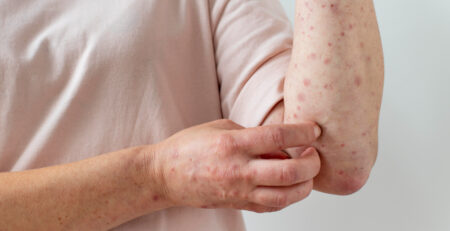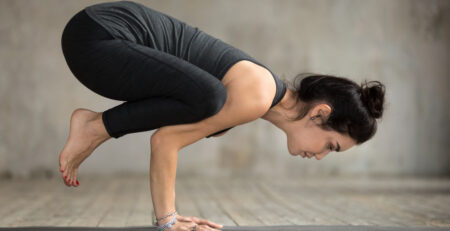The Best Yeast Infection Pills, Creams, and Treatment Options
A quick look at the best yeast infection pills, creams, and other treatments
Best for prevention: Uqora Promote
Best for quick relief: Monistat 1 Combination Pack
Best cream to relieve symptoms: Vagisil Maximum Strength Anti-Itch Creme
Best combination pack: Monistat 3 Combination Pack
Best natural treatment: Love Wellness The Killer
Best during pregnancy: Monistat 7
Best for people with a penis: Lotrimin for Jock Itch
A yeast infection can cause itching, irritation, and burning, which can be very painful. But there are many over-the-counter (OTC) treatments for yeast infections that work well enough that you don’t have to go to the doctor.
This article lists 7 of the best over-the-counter (OTC) products that can help you deal with a yeast infection.
What is a yeast infection?
A yeast infection is a common condition that happens when the fungus Candida grows too much. Yeast infections can happen anywhere in the body, but they usually happen in the genital area.
A vaginal yeast infection is a fungal infection that makes the vagina and vulva, the tissues at the opening of the vagina, red, swollen, and very itchy.
Vaginal yeast infections, also called vaginal candidiasis, can happen to up to 75 percent of people who have had a vagina at least once in their lives.
Most vaginas have the right amount of good bacteria and yeast. Most of the time, the good bacteria keep things in check. Under certain circumstances, the balance can be upset, letting the yeast grow out of control.
When yeast grows too much, it can be because:
- antibiotic use
- pregnancy
- unmanaged diabetes
- an impaired immune system
- taking oral contraceptives or undergoing hormone therapy that increases estrogen levels
Symptoms of a yeast infection in the vaginal area include:
- vaginal itching
- inflammation and swelling around the vagina
- pain during sex
- soreness
- redness
- rash
- white or gray clumpy discharge with a cottage cheese-like appearance
How are yeast infections treated?
Vaginal yeast infections can be treated with both prescription and over-the-counter drugs. If this is your first yeast infection, you should talk to your doctor to get a proper diagnosis.
But if you know what the signs are, you can probably get an over-the-counter medicine to treat the yeast infection.
Talk to your doctor about your symptoms and what kind of care you need if:
- After treatment, your symptoms don’t go away,
- the infection comes back within two months,
- or you have four or more yeast infections in a year.
You can get pills, creams, ointments, or gels from your doctor to treat yeast infections. Diflucan (fluconazole) is a medicine that is taken by mouth and is usually only given once. If you have a bad yeast infection, your doctor may prescribe a longer course of medicine.
Other over-the-counter and prescription drugs include:
- butoconazole (Gynazole)
- clotrimazole (Lotrimin)
- miconazole (Monistat)
- terconazole (Zazole)
Make sure to always finish the full course of treatment, even if your symptoms go away before the medication is done.
How do yeast infection treatments work?
Most over-the-counter treatments are creams, gels, or pills that you take by mouth. Even though they all aim to relieve symptoms, they tend to work in different ways.
Yeast infection pills
Most pills for yeast infections need a prescription. Most people take fluconazole (Diflucan), which is a pill that only needs to be taken once to treat fungal infections. It hurts the cell wall of the fungus that causes the infection, making it harder for the bacteria to grow.
Yeast infection creams and gels
Creams and gels like Monistat and Vagisil usually work to stop burning and itching, which are two of the most uncomfortable symptoms. Most of the time, they go into the vagina to kill the yeast that is causing the infection. Some creams and gels come with tools that make it easy to get the right amount.
Yeast infection probiotics
You can take probiotics to lower your risk of getting a yeast infection, but they can also help ease the symptoms if you already have one. The good bacteria in the probiotics work to bring the pH level of the vagina back to normal.
How we chose
When choosing an over-the-counter treatment for a vaginal yeast infection, there are many things to think about. To make the list of services below, we thought about a number of things, such as:
- length of treatment
- customer reviews
- type of medication
- price
Pricing guide
- $ = under $10
- $$ = $10–$20
- $$$ = over $20
Healthline’s picks of the 7 best yeast infection pills and treatments
Best for prevention
Uqora Promote
- Price: $$$
- Type of treatment: probiotic
Keeping a good balance of bacteria can help keep yeast infections from happening. The Uqora vaginal probiotic supplement is made to keep the good bacteria in your vaginal area healthy. One pill a day is what the directions say to do.
Each bottle has 30 capsules that will last one month.
Pros
- promotes a healthy microbiome may help prevent yeast and bacterial infections, as well as urinary tract infections
Cons
- Since it’s a food supplement, it’s not regulated by the Food and Drug Administration (FDA) and it doesn’t treat infections or relieve symptoms.
Best for quick relief
Monistat 1 Combination Pack
- Price: $$
- Type of treatment: cream
The one-dose Monistat vaginal insert comes with a prefilled applicator that has an egg-shaped suppository, which is sometimes called an ovule. Monistat 1 is a maximum-strength dose of miconazole nitrate that can treat the symptoms of a yeast infection with just one dose.
The company says that Monistat 1 “eases the symptoms of yeast infections four times faster than the most popular prescription pill.”
Pros
- only one dose
- relieves symptoms quickly
- can be used day or night
Cons
- strong dose
- Some customers say that the product made their skin itchier for a few hours after they used it.
Best cream to relieve symptoms
Vagisil Maximum Strength Anti-Itch Creme
- Price: $
- Type of treatment: cream
Even though this won’t cure a yeast infection, Vagisil Maximum Strength Anti-Itch Creme is a cream that helps relieve common yeast infection symptoms like itching, burning, and skin irritation.
In addition to the active ingredients (20% benzocaine and 3% resorcinol), it also has aloe and vitamins A, D, and E to help soothe skin.
This product also helps block the smell of vaginal discharge that gets worse when you have an infection.
Vagisil also makes a product with prebiotics, which can help get bacteria back into a healthy balance.
Pros
- helps block odor
- provides quick, long-lasting itch relief
Cons
- Itching is all it does, and it won’t cure a yeast infection.
Best combination pack
Monistat 3 Combination Pack
- Price: $$
- Type of treatment: cream
The Monistat 3-day treatment comes with three cream applicators that are already filled with cream and an anti-itch cream that you put on the skin. With a pack like this, it can be easy to treat the infection and stop the itching on the outside.
The applicators have 200 milligrammes (mg) of 4% miconazole nitrate in them, and the anti-itch cream has 2% miconazole nitrate in it.
Pros
- treatment and relief from itching in a single product
- fast-acting relief
Cons
- Cream-filled applicators can be messy,
- so you should only use them at night.
Best natural treatment
Love Wellness The Killer
- Price: $$
- Type of treatment: vaginal suppository
Boric acid is a medium-chain fatty acid that kills bacteria, fungi, and reduces swelling. It can be used to treat infections caused by yeast. The Killer from Love Wellness is a boric acid-filled suppository.
You can use this product to balance bacteria and yeast for up to 14 days. bacterial vaginosis is another problem that The Killer can help with.
Pros
- Yeast infections and bacterial vaginosis are both treated,
- and it also helps control odour.
Cons
- It’s not clear from the directions how long to take the product (the website says between 1 and 14 days)
no ingredients that stop itching - Boric acid is not a good choice for pregnant women.
Best during pregnancy
Monistat 7
- Price: $$
- Type of treatment: cream
Each dose of Monistat 7 only has 100 mg of miconazole nitrate. It comes with cream and seven applicators that you can throw away.
Talk to your doctor before you take any medicines while you are pregnant. Depending on the Centers for Disease Control and Prevention (CDC), Yeast infections should only be treated with 7-day treatments that go on the skin.
Pros
- lower dose of miconazole nitrate
- relieves symptoms quickly
Cons
- applicators not prefilled
- longer treatment course
Best for people with a penis
Lotrimin for Jock Itch
- Price: $
- Type of treatment: cream
Any part of the body can get a yeast infection. People with a penis can use their fingers to put antifungal cream on the affected area.
The fungus that is causing the infection is killed by the 1% clotrimazole in Lotrimin Jock Itch. It stops the jock itch symptoms of itching, burning, and rubbing.
Pros
- provides symptom relief quickly
- easy to apply
Cons
- only 0.42 ounces of product
- full recovery may require multiple tubes
FAQs
How fast do yeast infection treatments work?
Most treatments for yeast infections last one, three, seven, or fourteen days. Most bottles of preventive probiotics have 30 capsules.
When should I see a doctor?
If you’ve never had a yeast infection before, you should see a doctor to get a proper diagnosis before trying any over-the-counter treatments.
You should also talk to a doctor if your symptoms don’t get better within 7 to 14 days. In this case, you might need a stronger treatment that you can only get from a doctor, or you might have a different infection.
Are there any side effects or safety concerns for yeast infection treatments?
Most pills and topical creams have some side effects, but they don’t happen very often. Some of the side effects are:
- burning
- stinging
- irritation
- redness
- pimple-like bumps
- tenderness
- flaking of the skin
Some over-the-counter antifungal creams may cause birth defects, so if you are pregnant, you should see a doctor to get a diagnosis and treatment.
If the over-the-counter medicine makes you feel worse, stop taking it and see a doctor.
Are yeast infections contagious?
Yeast infections aren’t considered sexually transmitted infections (STIs), but they can be passed to a partner if you have sex without a barrier method.
If the mother has a yeast infection, the baby could also get a fungal diaper rash at birth. But you can’t “catch” a yeast infection by taking a shower with someone else or exchanging saliva.
Takeaway
Yeast infections are common, so it’s important to be able to get effective treatment. When it comes to treating yeast infections, over-the-counter (OTC) products can be just as good as prescription drugs.
Talk to your doctor if you get yeast infections often or if your symptoms don’t go away after you’ve finished the full treatment.








Leave a Reply